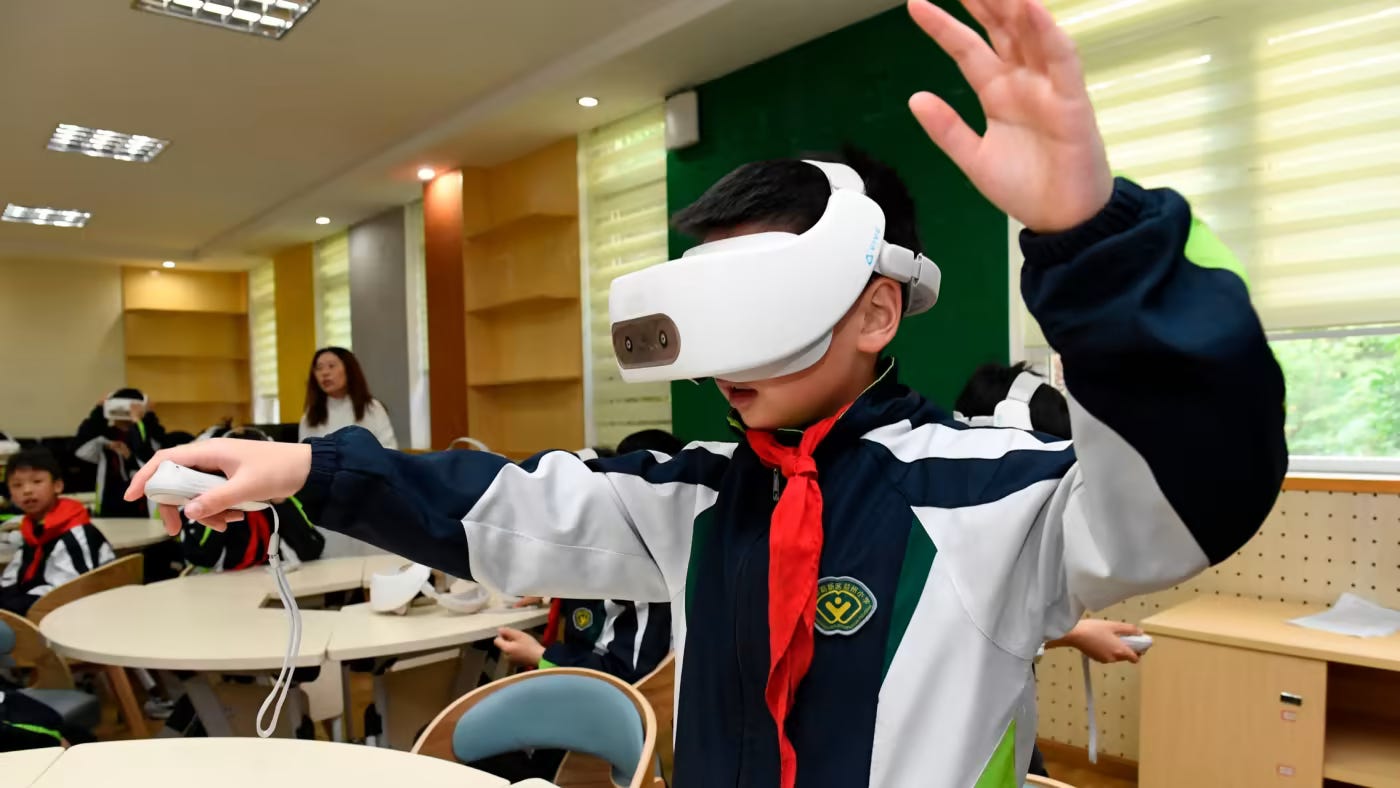Weekly Groundings are published every Friday to highlight the most interesting news, links, and writing I investigated during the past week. They are designed to ground your thinking in the midst of media overload and contribute to Handful of Earth’s broader mission. Please subscribe if you’d like to receive these posts directly in your inbox.
Without further ado, here’s this week’s Weekly Grounding:
“It’s Not Your Imagination—Shopping in Person Is Getting Worse”
One of the favorite ideological weapons of technologists is the idea that technological progress is “inevitable.” They argue that even if you don’t like the effects of a new technology, there’s no use in resisting it. This reporting at The Wall Street Journal contradicts this perspective by demonstrating how specific corporate decisions (not “inevitability”) drive technological changes with far-reaching impacts: “More American stores are doing with fewer employees and many have locked items up to keep them from being pilfered. With slowing sales and rising theft eating into profits, the risk is that retailers’ countermeasures will make in-person shopping even more miserable than it already is. In the best case scenario, that will shift sales to their own e-commerce sites, worsening margins. But it could also just shift shoppers to better-staffed competitors or pure online retailers like Amazon.” According to the article, decisions along these lines are now a “CEO topic.” The result is pushing more and more customers online in order to obtain basic goods.
“‘Edtech’ Offers No Escape From Reality”
John Thornhill explores the post-pandemic rise of “edtech” for The Financial Times. He profiles the new Optima Academy Online recently launched in Florida, where “students use Meta Quest 2 headsets for about three hours a day for formal lessons and then do course work independently with digital check-ins.” In case this sounds far-fetched, VR headset schooling is already underway in China:
I am sympathetic to Thornhill’s skepticism of edtech, but would suggest that high-tech schooling is more an extension of classroom-based compulsory schooling—what John Taylor Gatto called “dumbing us down”—than its opposite.
“Chinese Manufacturers Use 12 Times More Robots Than U.S. Manufacturers When Controlling for Wages”
The undemocratic imposition of novel technologies is not limited to education. Indeed, in the 1970s, economists Samuel Bowles and Herbert Gintis argued that “work casts a long shadow over school.” VR headset schooling cannot be understood outside of this context, in which the ruling class dreams of replacing human labor with machines. In this article for the Information Technology and Innovation Foundation, Robert D. Atkinson documents how far this project has gone in China: “In 2021, China had installed 18% more robots per manufacturing worker than the United States. And when controlling for the fact that Chinese manufacturing wages were significantly lower than US wages, China had 12 times the rate of robot use in manufacturing than the United States.” For more on this topic, see “China’s High-Tech Field of Dreams” discussed in Weekly Grounding #14.
“NATO to Launch Biggest Military Exercise Since Cold War”
The title of this Financial Times article says it all. The fact that this is not a bigger story in the American media is disturbing since this military exercise threatens to drive the country even further into endless war. The exercise “will start in spring next year and is expected to involve between 500 and 700 air combat missions, more than 50 ships, and about 41,000 troops, Nato officials said.” The article continues: “The drill will take place across Germany, Poland and the Baltics in February and March and forms part of a new training strategy that will see the military alliance carry out two big exercises every year, instead of one. Nato will also train to counter terrorist threats outside its immediate borders.”
“On Missouri v. Biden and ‘The New Abnormal’: Interview With Dr. Aaron Kheriaty”
- interviews for on developments in the important Missouri v. Biden case. In the interview, Kheriaty explores why censorship is central to the functioning of the “biomedical security state,” which is characterized by an “increasingly militarized public health apparatus” and the “use of digital technologies of surveillance and control,” both of which are “backed up by the police powers of the state.” Kheriaty continues: “I think that the biosecurity model could not have been implemented without censorship. The American people would’ve pushed back much harder and asked a lot more pointed questions that surfaced in the public discussion if this extremely effective machinery of censorship had not been in place, and had not been road-tested prior to the pandemic. I don’t think that things that I describe in The New Abnormal or the policies that prevailed during Covid, whether it’s lockdowns or school closures or vaccine mandates or vaccine passports, could have been rolled out in the way that they were and embraced in the way that they were without censorship. I think if you remove the government-sponsored censorship element, which was global, what happened to us during those three years would’ve looked very, very different.”
- offers a much-needed critique of Right-wing misogyny at the . She argues that “the dissident Right is dying, and a new radicalism is yet to be born.” The Right’s abandonment of politics in favor of cynical attacks on “normie lib women” means that “you don’t need a critique of the predatory financialisation that destroys real-world value and broad prosperity, let alone meaningful policies for reining it in. You don’t need to think about the limbic capitalism that enslaves us to our basest desires, or how we might mobilise to shut it down. We don’t even need to think about the technologies that shape and mediate our world, and how they might be making things worse as well as better. Instead, you can simply whine that women aren’t doing as they’re told.”
What grounded your thinking this week? Feel free to share in the comments.






Thanks for that link to the "edtech" article Vincent! I have saved it for later reference.